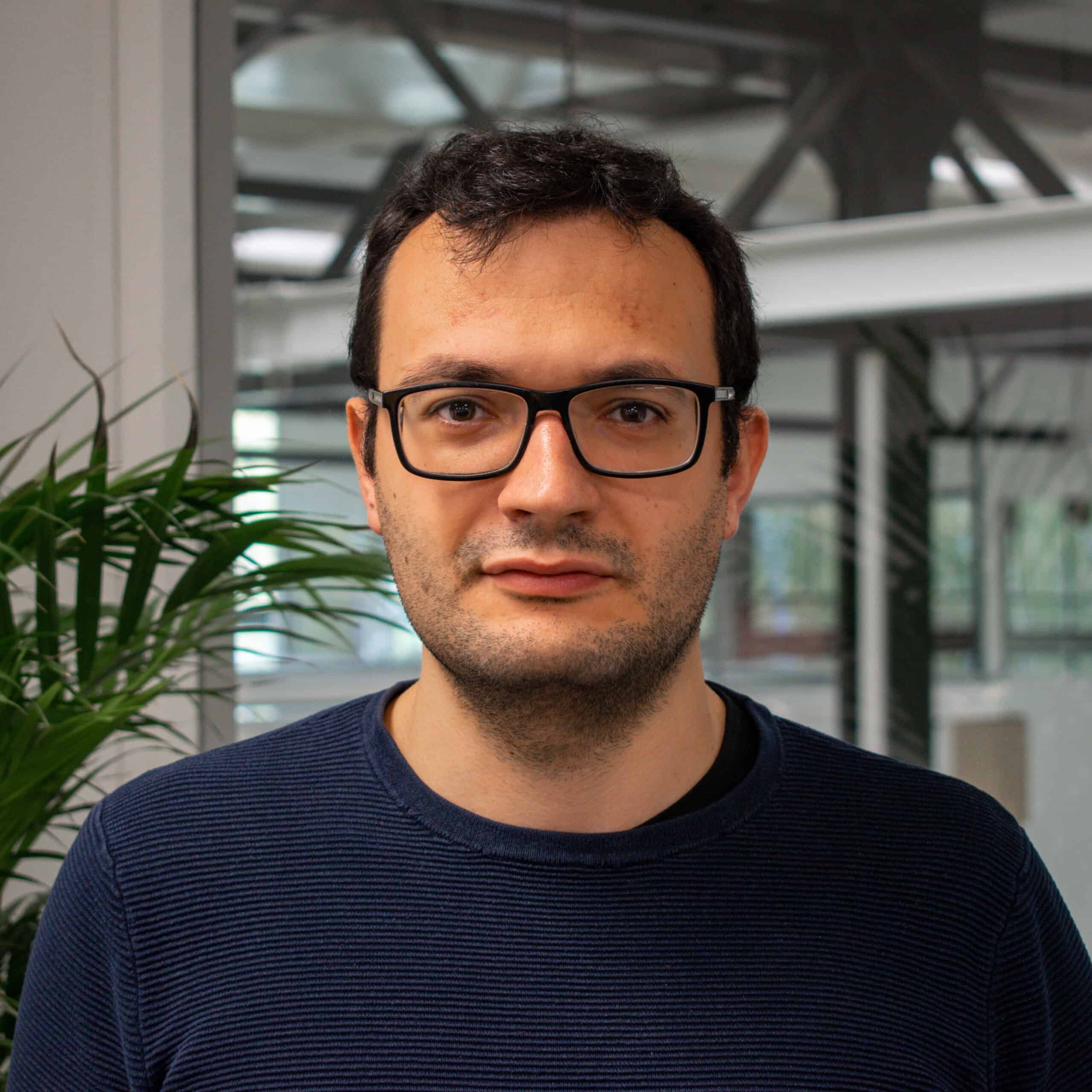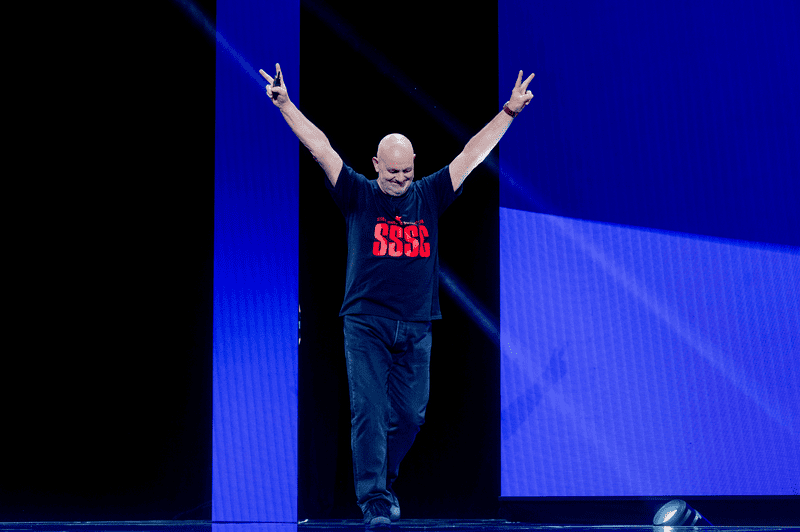
Catching up with the United States and China in making innovation happen, is not something that will happen by copying them. The European Innovation Council – EIC – instead prefers to do it ‘the European way.’
“A lot of opportunities in the deep tech sector coincide with European values, such as addressing climate change, health problems, and food security. However, we have to be realistic because there is still a lot of work to be done,” states Mark Ferguson, chair of the EIC board.
Established in 2021, the EIC is the flagship innovation programme of the EU. It is responsible for identifying, developing, and scaling up innovation across the European Union. The EIC board defines and implements the council’s strategies. It has independent members who come from the innovation ecosystem – entrepreneurs, investors, and researchers.
The European Commission recently adopted the 2023 work programme of the EIC. It provides funding to the tune of over €1.6 billion, whereby innovation is supported at all stages, from research to the scale-up phase. In its 2023 version, the program sets eight challenges for start-ups and small and medium-sized enterprises (SMEs) in order to become leaders in strategic technological areas. It also aims to increase the flow of talent from academia to business, support more female innovators and test innovations in public and private sector tenders.

Mark Ferguson
Chair of the EIC board
Former director general of the Science Foundation Ireland and founder of Renovo, he served as a professor and dean of biological sciences at the University of Manchester.
EIC’s impact
According to Ferguson, the EIC’s significance can be seen in the results of the recently published 2022 EIC Impact Report. “In terms of scaling up businesses, we made a lot of investments, which enabled some of the companies to attract private capital and grow into unicorns. At the other end of the spectrum are all the business acceleration services we offer. Generally speaking, the EIC’s role is to act as a catalyst. We work alongside the private sector and the national programs,” the chair of the board comments.
Main highlights of the EIC impact report 2022
- EIC-backed companies reached a combined valuation of €40 billion. The portfolio includes 12 unicorns – start-ups worth over a billion euros – and 112 centaurs – companies having more than 100 million euros in annual revenue.
- EIC support resulted in €10 billion in follow-on investments from private investors in its companies portfolio.
- 20 percent of funding went to women-led companies within the framework of the accelerator program and 30 percent of funding was allocated to women researchers under the pathfinder facility.
- The first €260 million invested by the EIC fund led to 92 investment agreements; 48 of those attracted €500 million in co-investment by private funding, a leverage effect of 2.6 times the value of the EIC investments.
- Support for over 500 research projects, resulting in 1375 innovations. Furthermore, €100 million was allocated to commercialize ground-breaking ideas through the EIC Transition tool.

Efficiency and reputation as ways to attract private investors
The 2022 impact report shows how, for every single euro spent by the Commission, private investors disbursed €2.60. The global average is three to one, but the board’s ambition is higher, as it aiming for a ratio of 5-to-1. Among some of the aspects that need to be worked on, streamlining bureaucracy is on top of the list. This was one of the main criticisms made about the EIC since its establishment.
Ferguson acknowledges the fact that the EIC hasn’t not yet meet these ambitions, albeit underlining that the EIC is effectively a start-up in itself. Being able to operate on the same timelines as the market is key. Moreover, building a strong reputation is of great help as well.
“Some companies that we invested in have done very well and this shows that we can do what we set out to do. Furthermore, as the EIC board, we ought to be able to accomplish the best in terms of due diligence in the world. This would encourage private investors to come on board, seeing that an entity like us has already given its green light,” he adds.
From a Nobel Prize factory to one full of unicorns
Academia and research centers of the EU rank high on global rankings. As a matter of fact, Europe has been labeled as a Nobel Prize Factory. More than half of the prize’s laureates come from the old continent. Despite such a wealth of knowledge, the conversion rate into successful companies is still relatively low. Transferring technology out of labs is another task the EIC needs to address when it comes to nurturing the European innovation ecosystem.
As a former academic, Ferguson believes that more funding is fundamental. Additionally, a different mindset can change the current heterogenous European scenario. Encouraging people is particularly relevant, according to the chair of the EIC board. If there’s one thing that the EU can learn from the US, is how it can capitalize on the fluidity of the innovation ecosystem.
“What matters is making people aware of the opportunities and the risks and to help guide them in and out of academia as needed. I’m very optimistic. I always tell people that there is a great deal of potential in Europe.”
What’s the EIC 2023 work programme?
It is the European Innovation Council funding scheme for 2023. Worth €1.6 billion, it funds innovators through three support instruments. The EIC Pathfinder scheme backs multidisciplinary research teams, with a budget of €343 million. To help research mature into innovative projects, there is the EIC Transition scheme – worth €128.3 million. The EIC Accelerator is designed to assist start-ups and SMEs to scale-up innovations, with a budget totalling €1.13 billion.
The formula to innovate
Looking at the year ahead, Ferguson expects that those figures will improve compared to the 2022 ones. The chair of the EIC board is confident that more investment will be forthcoming. US venture capitalists, for instance, are now investing more than ever in Europe.
Nevertheless, keeping all the EU member states on the same page where innovation is concerned is a “never-ending challenge.” Priorities change quickly in government agendas, and politicians themselves change too. Research and innovation can help solve problems, also with the help of wider spending on innovation across various public authorities. Instilling a proactive attitude in people and public bodies is part of the mission of the EIC. Equally important is motivating young entrepreneurs, and to do this “nothing succeeds like success” in Ferguson’s opinion. All of these elements mixed in together create the EU’s recipe for innovation.
“The European way implies cooperation. As the EIC, we are delighted to work with anyone to make sure that innovation is a collective effort and not a competitive one. There are opportunities and we can build on European values,” Ferguson says in closing.








